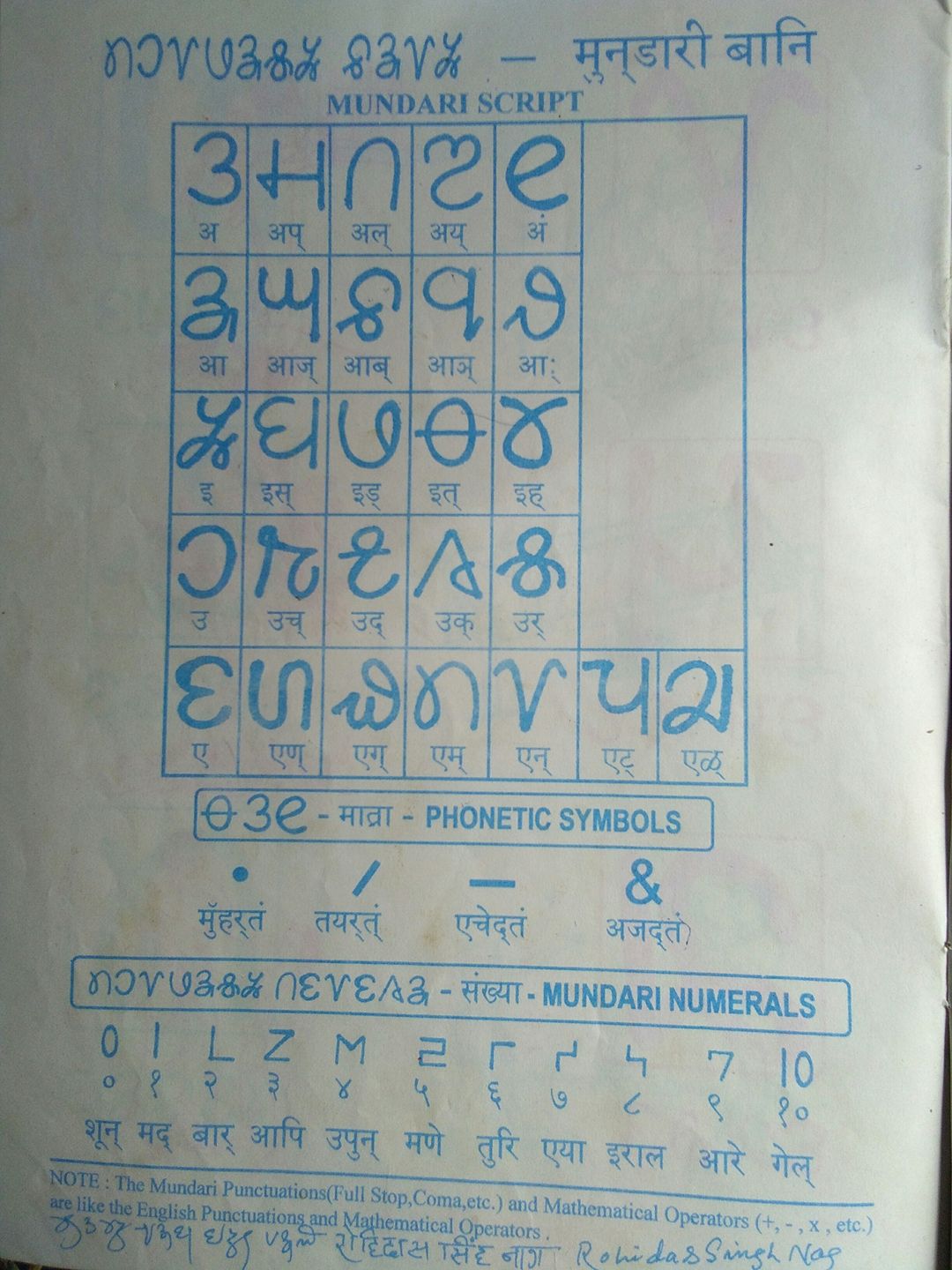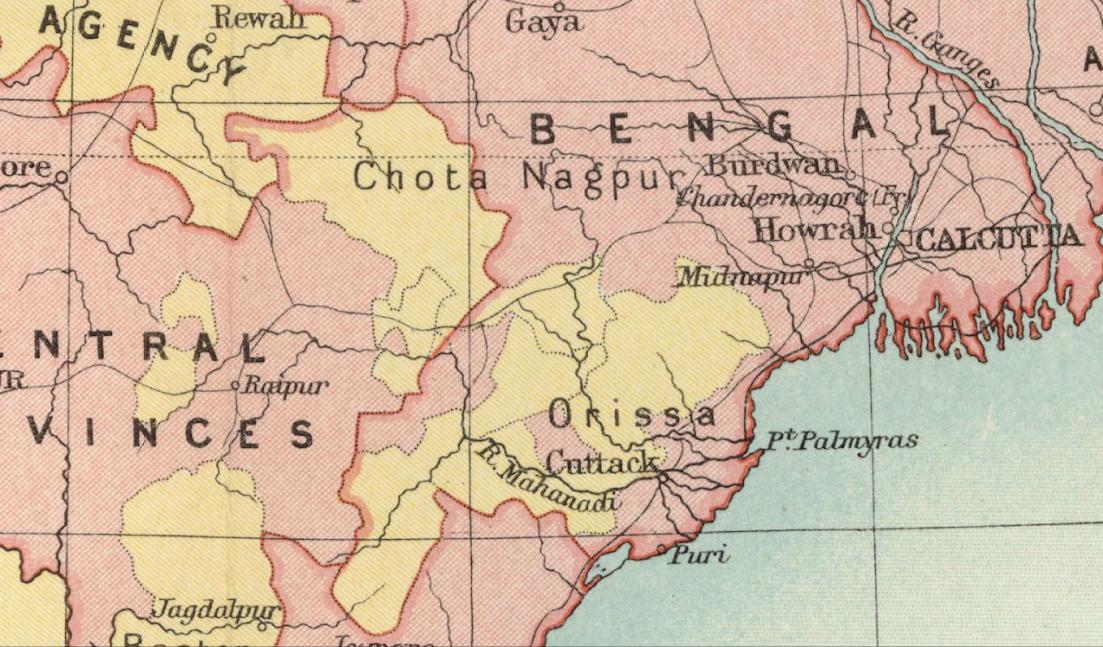|
John-Baptist Hoffmann
Johannes Baptist Hoffman (21 June 1857 – 19 November 1928), anglicized John-Baptist Hoffmann, was a German Jesuit linguist and missionary to the Mundas in India. Early life and training Hoffman was born in Wallendorf, Germany. After completing his early schooling i, Echternach and Luxembourg, Hoffmann joined the Jesuit novitiate in Arlon (Belgium) in 1877. He was still a novice when he arrived in India at the end of the same year. Further training in Asansol (Philosophy and Theology) completed his priestly formation. He was ordained priest in Calcutta on 18 January 1891. Gifted in languages he had learned also French and English along with the Ancient Greek and Latin. He started studying the Mundari language and acquired also a more than superficial knowledge of Indian culture during his theological studies in Asansol. Among the tribals of Chotanagpur Gifted as he was, Hoffmann was not a good professor. Attempts in Calcutta and Ranchi ( St. John's High School, Ranchi) were ... [...More Info...] [...Related Items...] OR: [Wikipedia] [Google] [Baidu] |
John-Baptist Hoffmann
Johannes Baptist Hoffman (21 June 1857 – 19 November 1928), anglicized John-Baptist Hoffmann, was a German Jesuit linguist and missionary to the Mundas in India. Early life and training Hoffman was born in Wallendorf, Germany. After completing his early schooling i, Echternach and Luxembourg, Hoffmann joined the Jesuit novitiate in Arlon (Belgium) in 1877. He was still a novice when he arrived in India at the end of the same year. Further training in Asansol (Philosophy and Theology) completed his priestly formation. He was ordained priest in Calcutta on 18 January 1891. Gifted in languages he had learned also French and English along with the Ancient Greek and Latin. He started studying the Mundari language and acquired also a more than superficial knowledge of Indian culture during his theological studies in Asansol. Among the tribals of Chotanagpur Gifted as he was, Hoffmann was not a good professor. Attempts in Calcutta and Ranchi ( St. John's High School, Ranchi) were ... [...More Info...] [...Related Items...] OR: [Wikipedia] [Google] [Baidu] |
Mundari Language
Mundari (Munɖari) is a Munda language of the Austroasiatic language family spoken by the Munda tribes in eastern Indian states of Jharkhand, Odisha and West Bengal. It is closely related to Santali. Mundari Bani, a script specifically to write Mundari, was invented by Rohidas Singh Nag. It has also been written in the Devanagari, Odia, Bengali, and Latin writing systems. History According to linguist Paul Sidwell (2018), Munda languages probably arrived on coast of Odisha from Indochina about 4000–3500 years ago and spread after Indo-Aryan migration to Odisha. Geographical distribution Mundari is spoken in the Ranchi, Khunti, Seraikela Kharsawan and West Singhbhum, East Singhbhum district of Jharkhand, and in the Mayurbhanj, Kendujhar, Baleshwar, Sundargarh district of Odisha by at least 1.1 million people. Another 500,000, mainly in Odisha and Assam, are recorded in the census as speaking "Munda," potentially another name for Mundari. Dialects Toshiki Osada (2008: ... [...More Info...] [...Related Items...] OR: [Wikipedia] [Google] [Baidu] |
German Ethnologists
German(s) may refer to: * Germany (of or related to) **Germania (historical use) * Germans, citizens of Germany, people of German ancestry, or native speakers of the German language ** For citizens of Germany, see also German nationality law **Germanic peoples (Roman times) * German language **any of the Germanic languages * German cuisine, traditional foods of Germany People * German (given name) * German (surname) * Germán, a Spanish name Places * German (parish), Isle of Man * German, Albania, or Gërmej * German, Bulgaria * German, Iran * German, North Macedonia * German, New York, U.S. * Agios Germanos, Greece Other uses * German (mythology), a South Slavic mythological being * Germans (band), a Canadian rock band * "German" (song), a 2019 song by No Money Enterprise * ''The German'', a 2008 short film * "The Germans", an episode of ''Fawlty Towers'' * ''The German'', a nickname for Congolese rebel André Kisase Ngandu See also * Germanic (other) * Germa ... [...More Info...] [...Related Items...] OR: [Wikipedia] [Google] [Baidu] |
19th-century German Jesuits
The 19th (nineteenth) century began on 1 January 1801 ( MDCCCI), and ended on 31 December 1900 ( MCM). The 19th century was the ninth century of the 2nd millennium. The 19th century was characterized by vast social upheaval. Slavery was abolished in much of Europe and the Americas. The First Industrial Revolution, though it began in the late 18th century, expanding beyond its British homeland for the first time during this century, particularly remaking the economies and societies of the Low Countries, the Rhineland, Northern Italy, and the Northeastern United States. A few decades later, the Second Industrial Revolution led to ever more massive urbanization and much higher levels of productivity, profit, and prosperity, a pattern that continued into the 20th century. The Islamic gunpowder empires fell into decline and European imperialism brought much of South Asia, Southeast Asia, and almost all of Africa under colonial rule. It was also marked by the collapse of the large S ... [...More Info...] [...Related Items...] OR: [Wikipedia] [Google] [Baidu] |
1928 Deaths
Nineteen or 19 may refer to: * 19 (number), the natural number following 18 and preceding 20 * one of the years 19 BC, AD 19, 1919, 2019 Films * ''19'' (film), a 2001 Japanese film * ''Nineteen'' (film), a 1987 science fiction film Music * 19 (band), a Japanese pop music duo Albums * ''19'' (Adele album), 2008 * ''19'', a 2003 album by Alsou * ''19'', a 2006 album by Evan Yo * ''19'', a 2018 album by MHD * ''19'', one half of the double album ''63/19'' by Kool A.D. * ''Number Nineteen'', a 1971 album by American jazz pianist Mal Waldron * ''XIX'' (EP), a 2019 EP by 1the9 Songs * "19" (song), a 1985 song by British musician Paul Hardcastle. * "Nineteen", a song by Bad4Good from the 1992 album '' Refugee'' * "Nineteen", a song by Karma to Burn from the 2001 album ''Almost Heathen''. * "Nineteen" (song), a 2007 song by American singer Billy Ray Cyrus. * "Nineteen", a song by Tegan and Sara from the 2007 album '' The Con''. * "XIX" (song), a 2014 song by Slipk ... [...More Info...] [...Related Items...] OR: [Wikipedia] [Google] [Baidu] |
1857 Births
Events January–March * January 1 – The biggest Estonian newspaper, ''Postimees'', is established by Johann Voldemar Jannsen. * January 7 – The partly French-owned London General Omnibus Company begins operating. * January 9 – The 7.9 Fort Tejon earthquake shakes Central and Southern California, with a maximum Mercalli intensity of IX (''Violent''). * January 24 – The University of Calcutta is established in Calcutta, as the first multidisciplinary modern university in South Asia. The University of Bombay is also established in Bombay, British India, this year. * February 3 – The National Deaf Mute College (later renamed Gallaudet University) is established in Washington, D.C., becoming the first school for the advanced education of the deaf. * February 5 – The Federal Constitution of the United Mexican States is promulgated. * March – The Austrian garrison leaves Bucharest. * March 3 ** France and the United Kingdom for ... [...More Info...] [...Related Items...] OR: [Wikipedia] [Google] [Baidu] |
Trier
Trier ( , ; lb, Tréier ), formerly known in English as Trèves ( ;) and Triers (see also names in other languages), is a city on the banks of the Moselle in Germany. It lies in a valley between low vine-covered hills of red sandstone in the west of the state of Rhineland-Palatinate, near the border with Luxembourg and within the important Moselle wine region. Founded by the Celts in the late 4th century BC as ''Treuorum'' and conquered 300 years later by the Romans, who renamed it ''Augusta Treverorum'' ("The City of Augustus among the Treveri"), Trier is considered Germany's oldest city. It is also the oldest seat of a bishop north of the Alps. Trier was one of the four capitals of the Roman Empire during the Tetrarchy period in the late 3rd and early 4th centuries. In the Middle Ages, the archbishop-elector of Trier was an important prince of the Church who controlled land from the French border to the Rhine. The archbishop-elector of Trier also had great signific ... [...More Info...] [...Related Items...] OR: [Wikipedia] [Google] [Baidu] |
Encyclopedia Mundarica (John-Baptist Hoffmann)
An encyclopedia (American English) or encyclopædia (British English) is a reference work or compendium providing summaries of knowledge either general or special to a particular field or discipline. Encyclopedias are divided into articles or entries that are arranged alphabetically by article name or by thematic categories, or else are hyperlinked and searchable. Encyclopedia entries are longer and more detailed than those in most dictionaries. Generally speaking, encyclopedia articles focus on ''factual information'' concerning the subject named in the article's title; this is unlike dictionary entries, which focus on linguistic information about words, such as their etymology, meaning, pronunciation, use, and grammatical forms.Béjoint, Henri (2000)''Modern Lexicography'', pp. 30–31. Oxford University Press. Encyclopedias have existed for around 2,000 years and have evolved considerably during that time as regards language (written in a major international or a vernacu ... [...More Info...] [...Related Items...] OR: [Wikipedia] [Google] [Baidu] |
Muhammad Yunus (economist)
Muhammad Yunus (born 28 June 1940) is a Bangladeshi social entrepreneur, banker, economist and civil society leader who was awarded the Nobel Peace Prize for founding the Grameen Bank and pioneering the concepts of microcredit and microfinance. These loans are given to entrepreneurs too poor to qualify for traditional bank loans. Yunus and the Grameen Bank were jointly awarded the Nobel Peace Prize "for their efforts through microcredit to create economic and social development from below". The Norwegian Nobel Committee said that "lasting peace cannot be achieved unless large population groups find ways in which to break out of poverty" and that "across cultures and civilizations, Yunus and Grameen Bank have shown that even the poorest of the poor can work to bring about their own development". Yunus has received several other national and international honours. He received the United States Presidential Medal of Freedom in 2009 and the Congressional Gold Medal in 2010. In 2008 ... [...More Info...] [...Related Items...] OR: [Wikipedia] [Google] [Baidu] |
Grameen Bank
Grameen Bank ( bn, গ্রামীণ ব্যাংক) is a microfinance organisation and community development bank founded in Bangladesh. It makes small loans (known as microcredit or "grameencredit") to the impoverished without requiring collateral. Grameen Bank originated in 1976, in the work of Professor Muhammad Yunus at University of Chittagong, who launched a research project to study how to design a credit delivery system to provide banking services to the rural poor. In October 1983 the Grameen Bank was authorised by national legislation to operate as an independent bank. The bank grew significantly between 2003 and 2007. As of January 2011, the total borrowers of the bank number 8.4 million, and 97% of those are women. In 1998 the Bank's "Low-cost Housing Program" won a World Habitat Award. In 2006, the bank and its founder, Muhammad Yunus, were jointly awarded the Nobel Peace Prize. History Muhammad Yunus was inspired during the Bangladesh famine o ... [...More Info...] [...Related Items...] OR: [Wikipedia] [Google] [Baidu] |
Chota Nagpur Division
Chota Nagpur Division, also known as the South-West Frontier, was an administrative division of British India. It included most of the present-day state of Jharkhand as well as adjacent portions of West Bengal, Orissa, and Chhattisgarh. History Chota Nagpur division was a hilly and forested area. The region came under the control of the British in the 18th and 19th centuries, and was annexed to the Bengal Presidency, the largest province of British India. After the Kol rebellion of 1831-2, the division was exempted by Regulation XIII of 1833 from the general laws and regulations governing Bengal, and every branch of the administration was vested in an officer appointed by the supreme Government and called the Agent to the Governor-General of India for the South-West Frontier. In 1854 the designation of South-West Frontier Agency was changed to Chota Nagpur and it began to be administered as a Non-regulation province under the Lieutenant Governor of the then Bihar. It was change ... [...More Info...] [...Related Items...] OR: [Wikipedia] [Google] [Baidu] |
Landlords
A landlord is the owner of a house, apartment, condominium, land, or real estate which is rented or leased to an individual or business, who is called a tenant (also a ''lessee'' or ''renter''). When a juristic person is in this position, the term landlord is used. Other terms include lessor and owner. The term landlady may be used for the female owners. The manager of a pub in the United Kingdom, strictly speaking a licensed victualler, is referred to as the landlord/landlady. In political economy it refers to the owner of natural resources alone (e.g., land, not buildings) from which an economic rent is the income received. History The concept of a landlord may be traced back to the feudal system of manoralism (seignorialism), where a landed estate is owned by a Lord of the Manor (mesne lords), usually members of the lower nobility which came to form the rank of knights in the high medieval period, holding their fief via subinfeudation, but in some cases the land may also be di ... [...More Info...] [...Related Items...] OR: [Wikipedia] [Google] [Baidu] |








